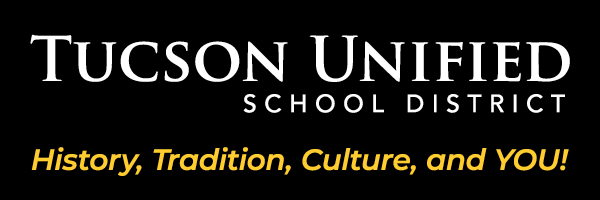Student Relations exists to help students succeed. We use a range of tools to create positive learning environments in our classrooms for every student.
Restorative Practices
Restorative practices are strategies for resolving problems and building relationships by addressing the social and emotional issues created by conflict and restoring students to supportive learning environments after making amends for poor choices.
How does Tucson Unified implement restorative practices?
- Small impromptu circles or large group circles: a few people meet to briefly address and resolve a problem; facilitated by district staff including teachers, counselors, and/or principals/assistant principals. A larger group can meet in a large circle or a classroom circle to discuss issues, answer questions, solve problems, or offer feedback; facilitated by district staff including, but not limited to: teachers, principals/assistant principals, counselors and/or Restorative and Positive Practice Facilitators (RPPFs).
- Formal restorative conferences: address serious problems of behavior. These conferences may involve students who commit disciplinary infractions, victims, parents/guardians, and principals/assistant principals. Only those trained in formal conferences can facilitate a formal conference.
- De-escalation: students may take a short time (no more than 30 minutes or the remainder of one class period) to de-escalate if they feel angry, overwhelmed, or in need of a time-out. Students will complete a reflection form to help staff de-escalate the situation and assist in helping to restore the student back into the classroom or classroom setting.
PBIS
PBIS is a proactive framework designed to prevent problem behavior while teaching socially appropriate behaviors. The focus of PBIS at TUSD is creating and sustaining safe and inclusive environments for all students to support appropriate behavior and redirect disruptive behavior.
How does Tucson Unified implement PBIS?
TUSD strives to create safe, positive environments by: defining and teaching behavioral expectations; monitoring and acknowledging appropriate behavior; providing corrective, appropriate consequences; providing appropriate behavioral supports (including actions like mentoring, social skills groups, and daily monitoring); using a team-based approach; and using referral data for problem solving.
Who is Responsible For Implementing Restorative Practices and PBIS?
Everyone. At every site. Under the direction of the campus principal and/or the Restorative and Positive Practices Facilitator (RPPF), staff members at every site must understand school rules; reinforce appropriate student behavior; and use constructive classroom management, positive behavioral interventions and supports, and/or restorative practices strategies, where appropriate, to promote safe, inclusive, and supportive learning environments for all students.
Positive Intervention Centers (PICs)
The District designed PICs so that a teacher can provide a student a short time (no more than 30 minutes or no more than the remainder of one class period) and a positive and supportive environment to de-escalate if they are feeling angry, overwhelmed or in need of a time-out. The teacher in the PIC will have the student fill out a reflection form to help identify the root cause of the feelings, de-escalate the situation, and assist in helping to restore the student back into the classroom or classroom setting. PICs are available at most middle schools, high schools, and large K-8 schools.
The teacher may...
send no more than three students out in a period.
The teacher may not...
send students in the first 15 minutes of class or at the end of class.
send students until after they have attempted interventions.
send the same student more than three times before sending them to a principal/assistant principal for review.
The staff will...
document student names and the classes they come from and will review the information regularly to ensure appropriate use of the PIC, monitor disparities, and determine if students need additional interventions.
Based on Arizona Revised Statute 15-841
Arizona Revised Statute 15-841
A teacher may send a disruptive student out of the classroom for 30 minutes or the duration of the period provided such action is consistent with this Student Code and only where one of the following condition exists:
Governing Board Regulation JK-R1
Regulation JK-R1
Principals may immediately remove a student whose presence poses a continuing clear and present danger to persons or property or an ongoing threat of disrupting the academic process.
- The teacher documented that the student has repeatedly interfered with the teacher’s ability to communicate effectively with the other students in the classroom or with the ability of the other students to learn; OR
- The teacher has determined that the student’s behavior is so unruly, disruptive or abusive that it seriously interferes with the teacher’s ability to communicate effectively with other students in the classroom or with the ability of the other students to learn.
In-School Intervention (ISI)
ISI is an alternative to short-term suspension where students will continue receiving classroom instruction from content-certified teachers in a classroom on campus (ISI is available at all middle schools, all high schools, and large K-8 schools).
District Alternative Education Program - Alternative to Long-Term Suspension
DAEP is an alternative to long-term suspension. It is a voluntary program that provides 6th – 12th grade students with the opportunity to continue their education and reflect on the underlying behaviors and circumstances that led to the inappropriate behavior. DAEP assists students in learning appropriate behaviors and making better choices so they can be a successful student when they are restored to their home school.
See the DAEP website to learn more about this program.


